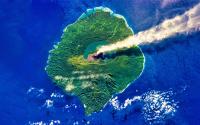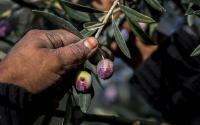David LeighMarch 6, 2003
From 1982 on, Saddam Hussein was filling an arsenal of shells and bombs with mustard gas and nerve agents at his main chemical munitions complex, Muthanna, in the desert 50 miles north-west of Baghdad.
But by 1984 his purchase of the essential chemical precursors on the world market was getting more difficult, largely thanks to pressure from a section of the US administration on German companies, his main suppliers.
President Saddam's chemical warfare procurement agency, the so-called state enterprise for pesticide production (SEPP), embarked on a new strategy, to make everything it needed at home. It commissioned a chlorine plant, to be built at Falluja, close to the Habbaniya air base.
Chlorine, used as a weapon by the Germans in the first world war, is a basic disinfectant and chemical building block. It is manufactured in large quantities, along with caustic soda, by passing electric currents through brine.
This was the design SEPP ordered from Uhde, saying it was for water treatment. In fact, according to the CIA, Iraq already had three chlorine plants, making more than enough for the country's requirements. Iraq's intention, according to later intelligence, was to install additional equipment once the plant was built, to further process the chlorine.
As the MoD noted, the Iraqis could produce epichlorohydrin - "a key precursor for the chemical warfare agent mustard". The MoD added: "The chlorine ... can also be used in the manufacture of phosphorus trichloride, a key nerve agent precursor."
Uhde Ltd got the contract in December 1984, in association with another German firm which was SEPP's overall supplier. Uhde agreed to pay that intermediary a commission of almost £1m.
The contract had other odd features. Uhde Ltd, based in Hounslow, only had a handful of employees, with German executives. It was wholly owned by another German firm, Uhde gmbh, of Dortmund. The Dortmund firm in turn was at the time a subsidiary of the German chemical giant Hoechst.
This circuitous arrangement puzzled the export credit guarantee department, which recorded in a confidential memo: "Its very nature creates suspicions and there are some unusual circumstances concerning the contract which reinforce these."
The Foreign Office said: "The extent to which UK-manufactured equipment is involved in the proposed deal is not clear. ECGD tell us the UK company will in effect act as procurement agents for the various items of equipment, but we wonder if in fact the German parent has asked its UK subsidiary to front the operation in an effort to avoid a confrontation with the German authorities who have recently acted to prevent other similar orders being shipped to Iraq."
But the German federal government, when discreetly approached, seemed indifferent. The contract had been split into a German and a British part, it suggested, because the German export credit agency was unwilling to insure such a large deal.
The Foreign Office minister Richard Luce complained: "I consider it disappointing the West German authorities seem to have avoided giving any formal judgment on the end-use of the plant."
It is clear Britain could have put a spanner in the works of the Uhde contract. The firm said the banks would refuse to lend it working capital if the ECGD refused insurance cover. Instead, as part of a larger policy of cultivating President Saddam, the Thatcher government decided to help his probable chemical warfare ambitions, rather than hinder them.
Over the next five years, chemical plant components, some ordered from Italy, were steadily shipped out to Falluja. By May 1990 the SEPP signed acceptance of the entire chlorine plant.
Only a few minor commissioning touches remained. By the time the Gulf war broke out Uhde had taken its profit. Any problems remaining were to be picked up by the British taxpayer.
Uhde Ltd's final set of accounts records: "The commencement of hostilities _ in Kuwait and Iraq has resulted in a breakdown of communications with SEPP in Iraq _ associated trade debtors have been written down to the amount recoverable from the ECGD."
The ECGD said yesterday that it had subsequently written a government cheque to the company for around £300,000.
Uhde in Dortmund, now owned by ThyssenKrupp, said: "This was a normal plant for the production of chlorine and caustic soda. It could not produce other products. The ECGD provided our English subsidiary company with insurance cover."






